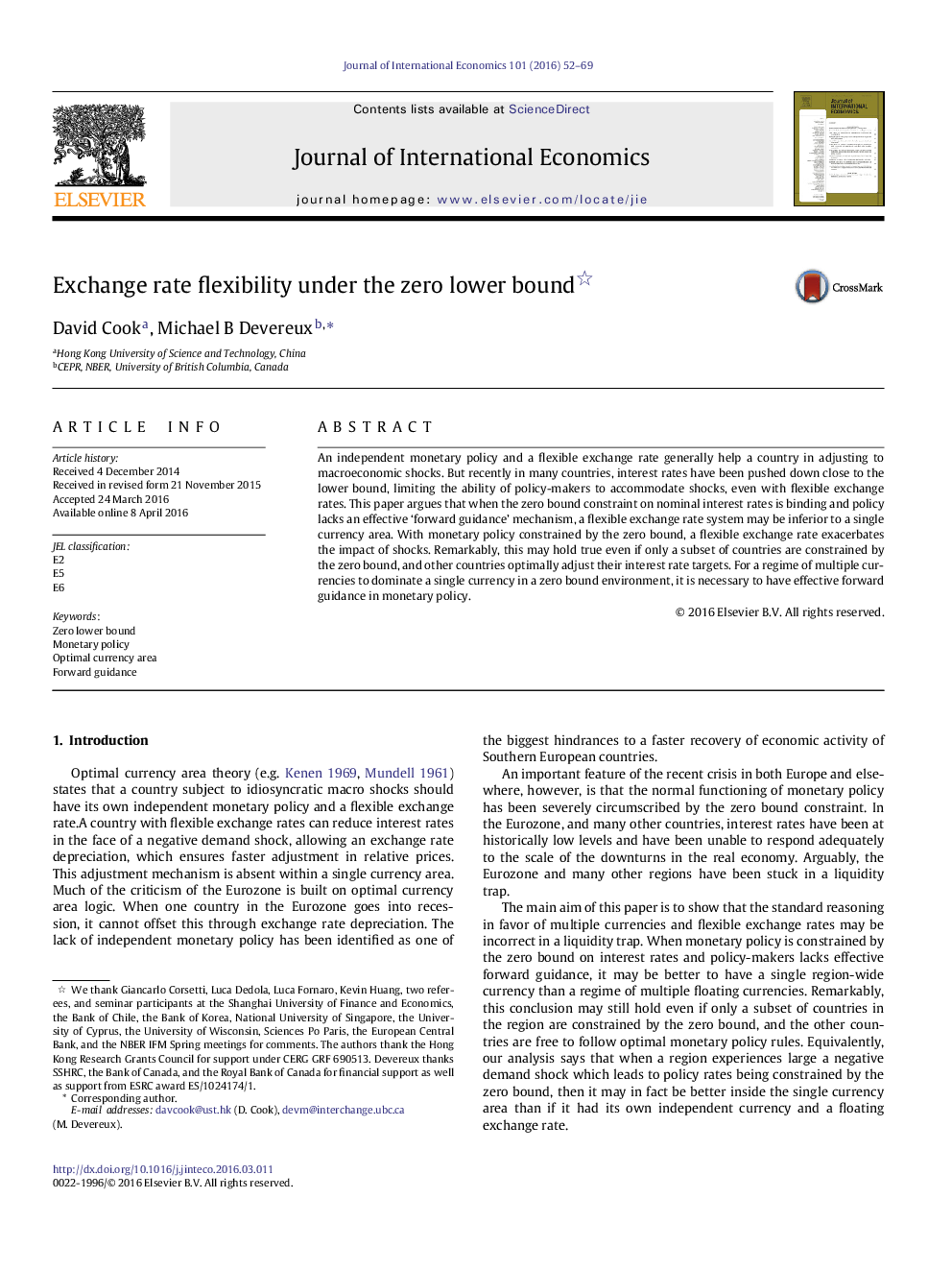| Article ID | Journal | Published Year | Pages | File Type |
|---|---|---|---|---|
| 7364081 | Journal of International Economics | 2016 | 18 Pages |
Abstract
An independent monetary policy and a flexible exchange rate generally help a country in adjusting to macroeconomic shocks. But recently in many countries, interest rates have been pushed down close to the lower bound, limiting the ability of policy-makers to accommodate shocks, even with flexible exchange rates. This paper argues that when the zero bound constraint on nominal interest rates is binding and policy lacks an effective 'forward guidance' mechanism, a flexible exchange rate system may be inferior to a single currency area. With monetary policy constrained by the zero bound, a flexible exchange rate exacerbates the impact of shocks. Remarkably, this may hold true even if only a subset of countries are constrained by the zero bound, and other countries optimally adjust their interest rate targets. For a regime of multiple currencies to dominate a single currency in a zero bound environment, it is necessary to have effective forward guidance in monetary policy.
Related Topics
Social Sciences and Humanities
Economics, Econometrics and Finance
Economics and Econometrics
Authors
David Cook, Michael B Devereux,
